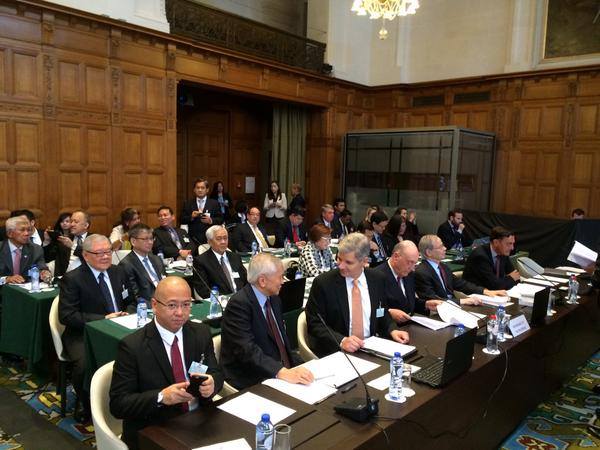
MANILA – During the first day of the hearing on the disputed territories in the South China Sea, the Philippines presented the country’s arguments before the tribunal and stressed China’s lack of basis on its historic claims over reefs in the contested waters.
Principal counsel Paul Reichler and Andrew Loewenstei pointed out that China’s massive claims were unlawful and beyond their maritime entitlements under the provisions of the United Nations Convention on the Law of the Sea (UNCLOS).
“Mr. Reichler mentioned that China has asserted exclusive rights over the areas covered by the nine-dash line and has deprived the Philippines of fishing and exploration activities,” Deputy Presidential Spokesperson Abigal Valte said in a Philippine Star report.
“Andrew Loewenstein argued that even assuming, for the sake of argument, that a claim of historic rights can exist after the UNCLOS, China has failed to satisfy the requirements to establish the claim, namely: a continuous exercise of exclusive control for a long period of time over the said area,” Valte added.
Loewenstein referred to eight historic maps which supported his statement – all maps did not show China’s nine-dash line.
China, for their part, reiterated their nonparticipation in the said case filed before the Permanent Court of Arbitration at The Hague, Netherlands.
“Our position is crystal clear: we will neither accept nor participate in the arbitration,” Chinese Foreign Ministry Spoeksperson Hong Lei said in a press conference.
They also asserted that the Philippines breached the bilateral consensus as they filed the case.
“In an attempt to negate China’s territorial sovereignty and maritime rights and interests in the South China Sea, the Philippine side unilaterally initiated the arbitration in breach of bilateral consensus with China and its commitment in the Declaration on the Conduct of Parties in the South China Sea,” Lei added.
Beijing also claimed that their reclamation activities and construction of facilities in the reclaimed islands were well under their sovereignty and clarified that the reefs were not going to be used for military purposes.
“We will also build a moderate amount of necessary defense facilities on some of the islands and reefs which have nothing to do with militarization, target no one and have no impact on the freedom of navigation and overflight in the South China Sea conferred by international law on all countries,” Lei said.
The first round of oral arguments over the disputed region will last until next week.
Despite China’s nonparticipation, the Philippines remained ‘fully prepared to present the country’s case’ before the court and continuously called on countries to respect the rule of law on international waters.